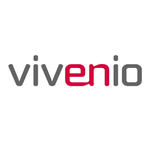Description

GEVME

vivenio
Comprehensive Overview: GEVME vs vivenio
As of my last update in October 2023, here's an overview of GEVME and Evenito, two prominent event management platforms. (Note: I assume "vivenio" might be a typo or confusion with another event management tool called "Evenito.") If "vivenio" was intended, kindly check for any additional information on it as it may not be a widely recognized platform—or provide more context for a potential revisit to this assessment.
GEVME
GEVME (Global Event Management and Virtual Event) is a robust event management software that caters to both physical and virtual events.
a) Primary Functions and Target Markets:
- Primary Functions: GEVME offers end-to-end event management solutions, including registration management, event marketing, audience engagement, virtual event hosting, and analytics. It provides tools for building event websites, managing attendees, creating virtual environments, and facilitating hybrid events.
- Target Markets: The platform targets corporate event organizers, associations, and conference managers. It appeals to industries like technology, finance, medical, and education sectors that frequently host both large-scale international and specialized niche events.
b) Market Share and User Base:
- Market Share: GEVME has established a substantial presence in the Asia-Pacific region and is gradually expanding its footprint globally. However, as the market for event management solutions is highly fragmented with competitors like Cvent, Eventbrite, and On24, its market share is modest on a global scale.
- User Base: The user base primarily includes large enterprises, educational institutions, and government agencies looking for comprehensive event solutions.
c) Key Differentiating Factors:
- Virtual Event Offering: GEVME has developed extensive capabilities for hosting virtual events, a feature that has gained prominence during and post-pandemic.
- Local Expertise: It offers strong local support and expertise, especially in the Southeast Asian markets.
- Customization and Integrations: GEVME is highly customizable and integrates well with various third-party applications and services.
Evenito
Evenito is a European-based event management platform known for its simplicity and focus on user experience.
a) Primary Functions and Target Markets:
- Primary Functions: Evenito offers solutions for event registration, email marketing, attendee management, and post-event analytics. It also provides tools for creating event pages and engaging with participants through polls and Q&A.
- Target Markets: It primarily targets small to medium-sized enterprises (SMEs), corporate marketing teams, and event agencies. Industries often include marketing, communications, and small public sector events.
b) Market Share and User Base:
- Market Share: Evenito holds a smaller market share compared to giants in the sector, being more popular in the European market, especially among SMEs.
- User Base: The user base predominantly includes SMEs and marketing teams that prioritize ease of use and streamlined event operations.
c) Key Differentiating Factors:
- Ease of Use: Evenito emphasizes user-friendliness, making it easy for non-tech savvy users to set up and manage events.
- European Focus: Evenito has strong penetration and support within the European market, aligning with local event management needs and regulations.
- Cost-Effective: It offers competitive pricing models attractive to smaller organizations with limited budgets.
Comparative Analysis
When comparing GEVME and Evenito:
- Scale of Events: GEVME is better suited for large-scale, complex events, including hybrid and virtual formats, while Evenito caters to smaller, simple events.
- Geographical Focus: GEVME is expanding globally but has strong local expertise in Asia-Pacific, while Evenito remains focused on serving the European market.
- User Experience: Evenito places a stronger emphasis on simplicity and ease of use, contrasting with GEVME's expansive and feature-rich platform that might necessitate a steeper learning curve.
Each platform has its unique strengths, catering to different segments of the event management industry based on the scale, complexity, and regional preferences of their events.
Contact Info

Year founded :
2013
+65 6592 5188
Not Available
Singapore
http://www.linkedin.com/company/gevme

Year founded :
2017
+34 911 98 80 50
Not Available
Spain
http://www.linkedin.com/company/vivenio
Feature Similarity Breakdown: GEVME, vivenio
GEVME and Vivenio are both event management platforms designed to facilitate various aspects of organizing and managing events. Here's a feature similarity breakdown for these two platforms:
a) Core Features in Common
-
Event Registration: Both platforms offer comprehensive event registration systems with customizable forms and ticketing options.
-
Attendee Management: Features for managing attendee information, tracking attendance, and providing attendee insights are available on both platforms.
-
Event Website Creation: They both provide tools for creating event-specific websites, which can be customized to match the branding of the event.
-
Email Marketing: Email marketing tools are part of both platforms, allowing event organizers to send invitations, reminders, and follow-ups to attendees.
-
Analytics and Reporting: Both GEVME and Vivenio offer analytics and reporting capabilities to help event planners measure the success of their events.
-
Mobile Apps: Both platforms provide mobile applications that enhance the event experience for attendees and organizers.
-
Networking Tools: Tools that facilitate networking among attendees, such as chat functions and appointment scheduling, are common features.
b) User Interface Comparison
-
GEVME:
- GEVME is known for its intuitive and modern user interface that focuses on user-friendliness and ease of navigation. The dashboard provides a comprehensive overview of all events, making it easy to access different features with minimal clicks.
-
Vivenio:
- Vivenio's user interface is also user-friendly but has a more traditional layout. It tends to provide a structured menu-based navigation which might be preferred by users who like organized views and straightforward access to functionalities.
c) Unique Features
-
GEVME:
- Custom Virtual Event Solutions: GEVME offers extensive solutions for virtual and hybrid events, including 3D event environments and enhanced virtual networking options.
- Workflow Automation: GEVME provides more advanced workflow automation features, which help automate repetitive tasks, leading to a more streamlined event management process.
-
Vivenio:
- Integration with Payment Platforms: Vivenio might offer more extensive native integration options with a variety of payment platforms, which can be beneficial for events with complex financial transactions.
- Focus on Data Security and GDPR Compliance: Vivenio places a strong emphasis on data security and compliance with European data protection standards, which can be a unique selling point for events held in the EU.
In summary, while GEVME and Vivenio share common core features that cater to event management needs, differences in user interface design and specific features may lead users to prefer one platform over the other based on their specific needs, such as virtual event capabilities or data security priorities.
Features

Not Available

Not Available
Best Fit Use Cases: GEVME, vivenio
GEVME and Vivenio are both platforms designed to facilitate event management, but they cater to different needs and contexts. Below is a breakdown of the best-fit use cases for each:
a) GEVME
Types of Businesses or Projects:
-
Enterprise-Level Events: GEVME is ideal for large-scale enterprises that conduct complex, high-volume events such as conferences, trade shows, and large corporate gatherings. Its robust features can handle detailed logistics and large attendee numbers.
-
Event Agencies: Agencies that manage multiple events for various clients can benefit from GEVME’s comprehensive set of tools designed to streamline event planning and execution.
-
Government and Associations: Organizations or associations with regulatory requirements and need for high data security. GEVME often caters to industries where data protection is paramount.
-
Educational Institutions: Universities and colleges that host numerous academic events, workshops, and seminars.
Features:
- Comprehensive event management tools
- Integration with CRM and marketing platforms
- Customization for branding and user experience
- Support for both virtual and hybrid events
b) Vivenio
Scenarios Where Vivenio Is Preferred:
-
Mid-sized Businesses: Vivenio offers solutions that are more suited to mid-sized companies who require efficient event management without the extensive functionalities designed for very high-volume events.
-
Non-Profit Organizations: Non-profits looking to organize community engagements, fundraisers, or volunteer events will find Vivenio’s tools easy to use and set up to handle small to medium events efficiently.
-
Local Government and Small Corporates: Local government units or small corporations that conduct regional events or community meetings can benefit from its user-friendly interface and essential features.
-
Internal Corporate Events: Companies focusing on internal team-building, training days, or small-scale internal conferences can leverage Vivenio for its ease of use and focus on engagement.
Features:
- User-friendly interface
- Essential event management functionalities
- Cost-effective solutions for smaller events
- Tools for attendee engagement and interaction
d) Catering to Different Industry Verticals or Company Sizes
GEVME:
- Industry Verticals: GEVME is versatile and suitable for industries like IT, finance, education, and healthcare, where event complexity and data handling are crucial.
- Company Sizes: Primarily targets large enterprises and organizations with significant event management needs, supporting large teams and complex organizational structures.
Vivenio:
- Industry Verticals: Its simplicity and cost-effectiveness make it well-suited for education, non-profit, local government, and small business domains where ease of use and affordability are essential.
- Company Sizes: Tailored more toward small to medium-sized organizations that need strong event management capabilities without the scale requirements of larger entities.
In summary, GEVME is best suited for sophisticated, large-scale event requirements found in major enterprises and agencies, while Vivenio offers a more accessible solution for small to medium-sized businesses and organizations that need fundamental, efficient event management tools.
Pricing

Pricing Not Available

Pricing Not Available
Metrics History
Metrics History
Comparing teamSize across companies
Conclusion & Final Verdict: GEVME vs vivenio
To provide a conclusion and final verdict for GEVME and Vivenio, we will consider their overall value, their pros and cons, and offer recommendations for potential users.
Conclusion and Final Verdict
a) Considering all factors, which product offers the best overall value?
The best overall value between GEVME and Vivenio depends largely on the specific needs and priorities of the user. GEVME is generally seen as strong in providing a comprehensive suite for event management with robust capabilities for virtual and hybrid events. It is well-suited for organizations looking for an all-in-one event platform with scalability and versatility.
Vivenio, on the other hand, may offer significant value for smaller to mid-sized events with a focus on simplicity and user-friendly interfaces. It tends to cater better to organizations that prioritize ease of use and quick deployment without requiring extensive training or onboarding.
In terms of overall value, if your primary factor is comprehensive features and scalability, GEVME might offer better value. However, for those emphasizing simplicity and cost-effectiveness, especially for smaller events, Vivenio could be the more appropriate choice.
b) Pros and cons of choosing each product
GEVME:
-
Pros:
- Comprehensive event management features including registration, ticketing, virtual and hybrid event capabilities.
- Strong integration options with other platforms.
- Scalable for large events and enterprises.
- Extensive customization options for branding and event design.
-
Cons:
- Can be overwhelming with its extensive features requiring a learning curve.
- Higher cost associated with its full suite of features.
- May have features that are unnecessary for smaller events, leading to underutilization.
Vivenio:
-
Pros:
- User-friendly interface that is easy to set up and use.
- Cost-effective solution for smaller to mid-sized events.
- Focuses on essential features, reducing complexity.
- Fast deployment and lower training requirements.
-
Cons:
- Limited scalability for large events.
- Fewer advanced features compared to more comprehensive platforms like GEVME.
- May lack in-depth customization for larger or more complex events.
c) Specific recommendations for users deciding between GEVME vs Vivenio
-
Assess Your Event Scale and Complexity: If your events are large-scale, multi-faceted, or require complex functionalities, GEVME might be more appropriate. For smaller, straightforward events, Vivenio offers simplicity and efficiency.
-
Consider Budget Constraints: Understand your budget and cost implications. Vivenio might be more budget-friendly for small to mid-sized events, whereas GEVME could be seen as a long-term investment for robust event management.
-
Evaluate User Experience Needs: If ease of use and minimal onboarding are crucial, Vivenio is preferable. For users who can invest time in learning and utilizing advanced features, GEVME provides a broader range of capabilities.
-
Integration and Compatibility: Determine if there are critical integrations you need with other software. GEVME might offer more options here, which can enhance operational efficiency if integrating with larger systems is important.
In conclusion, both GEVME and Vivenio offer unique advantages that cater to different market needs. The decision should ultimately align with the user’s specific event requirements, budget, scale, and desired features. Conducting a trial or demo of both platforms might also provide more direct insights tailored to individual organizational needs.
Add to compare
Add similar companies



